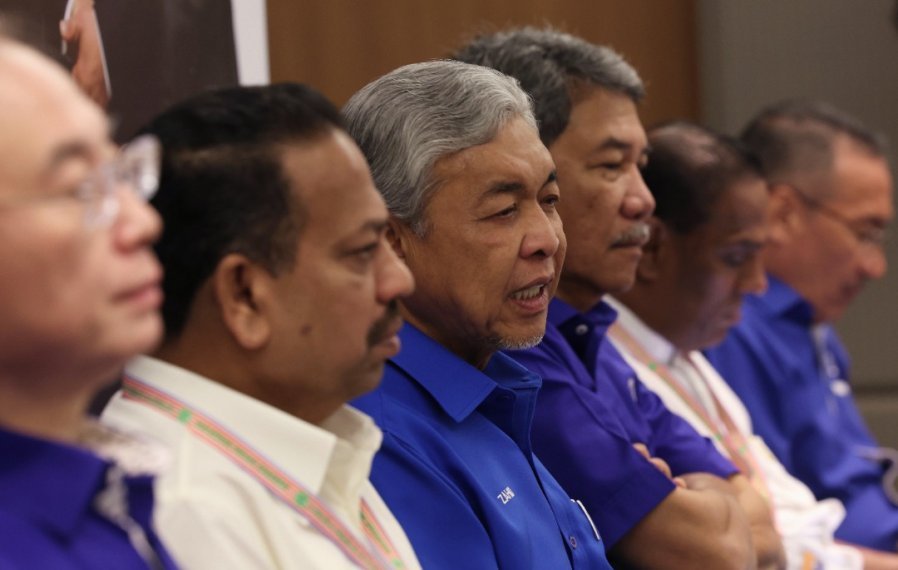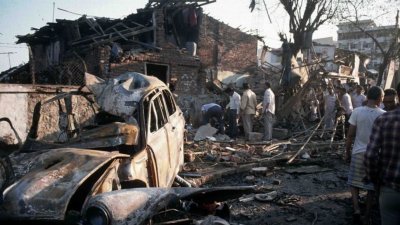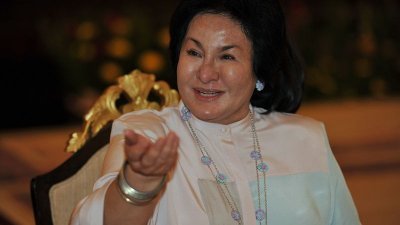在接下来的数周,将充斥著过多对于选民应如何在来临选举中抉择以及可能影响选举结果的课题之观点。更不用说,源源不绝的大选新闻和分析。
诸如“沙比里派钱后,举行选举”;“青年选民:大选变量”;“选巫统或土团:伊党的困境”;“马哈迪警告,如果巫统赢得第15届大选,纳吉将获释放”;“扎希声称遭迫害将适得其反,为反对党加分”;“马来西亚的困境:第15届大选抉择?”,以及“纳吉虽在狱中,但依然活跃于虚拟脸书,代表巫统嘲讽对手”等头条新闻,不管刊登在本地和外国媒体的,都预示著主导选举新闻的热点所在。
不管是这些课题还是过往大选中常期面对著的种族和宗教问题,我们可以预见这些关注点,会再次在第15届大选占据显著地位。然而,这些课题对选举结果起著怎样的关键作用,还有待观察。
随著多个马来政党的出现,相互争夺马来选票,而互揭疮疤时,会否缓和反非马来人的情绪和言论?还是我们会看到之前成功挑起马来人和伊斯兰权利和特权将面对著侵蚀的宣导策略进一步加剧,以确保这些课题继续成马来群众首要考量?
前首相马哈迪领导的门士党和其仓促下成立的祖国行动联盟(GTA)可能不会赢得很多选票,但其肯定会利用马来人的不安全感,将马来候选人和政党推向更极端的立场,并将自己描绘成真正捍卫马来人权利和霸权者。
伊党方面,可预见其将提出以马来人和穆斯林为主的竞选宣言,以确保其在马来腹地的吸引力。但伊党也将自己定位为可团结其他马来政党的造王者。该政党日前就披露,其在提名日之前,对与土团党、巫统和斗士党的合作,都会保持开放态度,以确保穆斯林的大团结,但这也意味著在更广大选民中,伊党影响力的局限。这也清楚地表明,在选举之后,伊党愿意与任何获胜的联盟合作,除了希盟例外,因伊党不认同希盟的倾世俗立场。
远离乡区的城市选民和政党被视为不太可能对选举结果产生重大影响,因为选区划分不公下,更有利于乡区选民,城乡选民的差距可以高达六倍。在上届大选,雪兰莪万宜国会议席选民就高达17万8790名,而霹雳州玲珑国席却只有2万9752名选民。
当下的城市选民显得意兴阑珊,这是因为他们的首选政党联盟,面对著的政治不确定性和动荡。但也没有证据表明大马城市人,无论老少,对政治会更加冷漠。
反之,人们会更愤世嫉俗。但绝大多数人似乎拒绝把他们的民主权利,包括投选所属意政党权利,让渡给操纵政治的力量。一般民众对日前提呈财案的失望、通胀飙升对收入造成的冲击,以及人们普遍认为在水灾季节时大选的不明智,这些肯定会成为许多城市居民投票时的考虑因素。
目前一般是看好巫统,这是基于其在乡区拥有强大基层动员机制,可领导国阵取得胜利。但巫统主席扎希最近的国大党大会上备受争议的言论,可能会改变整体局势,扎希在大会上把即将到来的大选形容为“最关键一场大选”,并警告说,如果巫统输掉来届大选,不只是他和前首相纳吉被控,其他巫统和国阵领导人,包括巫统署理主席莫哈末哈山、巫统部长希山慕丁、国大党主席威尼斯瓦兰和副主席沙拉瓦南,以及马华总会长魏家祥,也会面对同样的遭遇。
扎希试图将这广泛流传备受议论的说词,诠释为开玩笑,但没有成功。两名分别亲巫统和伊党的意见领袖,是这样回应扎希的言论:
著名部落客拉惹柏特拉质问:阿末扎希是否疯了?这无疑是在“政治自杀”?
玻州宗教司莫哈末阿斯里也说:“震惊听到一名政治人物竟然公开承认得赢得大选才能避免遭受贪污罪名的提控。如果这真的发生,这国家将成为贪污的天堂。”
来临大选,能把乡区和城市选民团结起来的一个共同因素,就是对过去和最近政治发展的正义之怒。随著占主导地位的政党每一次失误、滥权和治理不善,大部分民众的道德义愤日益增加。
这种道德上的义愤是跨越种族、宗教、年龄、性别和州界。不管是东马和西马都有这种不满情绪,而且是针对所有政党——只是或多或少。从喜来登政变开始,加上背叛民众信任的政治“青蛙”跳槽举动,以及疫情期间的白旗运动,进一步加剧人们对政府失去了信心。今天,对“法庭帮”一系列贪腐案的裁决,以及最新的濒海战斗舰合约的百亿令吉丑闻,让这股不满情绪推向高峰。
我们已经见识过,对政党和个别政客违法行为的道德愤怒,在决定许多政权的命运上发挥了决定性作用。这种道德愤怒感很可能会超越选民对政党的传统忠诚,甚至是每次选举所伴随而来的利惠和其他诱惑。如果这种情况出现,我们很可能会见证本国的第二次选举海啸。
林德宜《道德愤怒能否引发大选海啸?》原文:Can Moral Outrage Create a New Election Tsunami
In the next few weeks there will be a surfeit of views on how voters will respond to the coming election and the issues that can influence the outcome.
There is already no shortage of news and analysis.
Headlines such as “Ismail floods Malaysia with cash then calls snap polls”; “Youth voters: The Wild Card”; “UMNO or Bersatu: PAS’s Dilemma”; “Mahathir warns Najib will walk free if Umno wins GE15”; “Zahid's persecution claim backfires, providing Malaysia opposition with GE weapon”; “The Malaysian dilemma: how to vote in GE15?” and “Najib remains in jail but virtual Facebook presence still taunts rivals on Umno’s behalf ” appearing in the local and foreign media provide a foretaste of the hot button issues that are dominating the election news.
Underscoring these themes and others are the perennial election issues dealing with racial and religious concerns. We can expect these preoccupations again to feature prominently in GE15. However the extent to which they can play a crucial role in the election outcome is not clear.
Can the emergence of multiple Malay based parties vying for the community vote see a toning down of the anti-non Malay sentiment and rhetoric as they focus on each other’s deficiencies? Will we see a doubling down of earlier successful tactics focusing on the potential erosion of Malay and Islamic rights and privileges to ensure that this issue continues to be uppermost in the minds of the Malay masses?
Dr Mahathir’s latest party offering in Pejuang and the hastily cobbled Gerakan Tanah Air (GTA) may not win many votes but it will definitely play on the Malay sense of insecurity and push Malay candidates and parties to more extreme positions in portraying themselves as the real champions of Malay rights and hegemony.
PAS can be expected to generate the most exclusively Malay Moslem electoral manifesto to retain its appeal to the Malay heartland. But it is also positioning itself as a kingmaker linking the other Malay parties. The latest party disclosure that it is open to working with Bersatu, UMNO and Pejuang right up to nomination day to secure the unity of the Ummah is an admission of its limited electoral clout with the larger Malaysian electorate. It is also a clear indication that after the election, PAS is open to bedding with any winning coalition with the sole exception of Pakatan which the Islamic party is determined to keep out of power for its perceived pro secular position.
Away from rural Malaysia, urban voters and parties have been dismissed as unlikely to make much impact on the election outcome due to the massively uncorrected electoral gerrymandering which has favoured rural electorates by as much as a factor of six. During the last GE, the Selangor Bangi parliamentary seat had 178,790 voters as compared with Perak’s Lenggang’s total of 29,752 voters.
Today’s urban voters are clearly more fatigued due to the political uncertainty and upheavals that have engulfed Pakatan, their party of preference since its formation. But there is no evidence that urban Malaysians, young or old, are more apathetic.
More cynical, yes. But the great majority appear determined to resist surrendering their democratic rights, including the right to choose the government of their choice, to politically manipulated forces. The latest budget let down for private sector households, the hit on incomes arising from the inflationary upsurge and the widespread perception that the election timing is ill advised in view of the looming flood season will definitely be factors playing on the minds of many urbanites as they go to the voting booths.
Current betting is on UMNO with its well oiled superior rural grassroots machinery leading a Barisan Nasional victory. But what may provide the game changing factor may be Umno president Zahid Hamid’s speech at a recent MIC event in which he described the coming election as “the mother of all general elections” and warned that not only he and former PM Najib could be prosecuted if UMNO loses but also a host of other UMNO and BN leaders, including his deputy president Mohamad Hasan, Umno minister Hishammuddin Hussein, MIC president S.A. Vigneswaran and deputy president M. Saravanan, as well as Malaysian Chinese Association president Wee Ka Siong.
Zahid’s attempt to pass this widely viralized disclosure as a joke has not been successful. Two of the most fervent Umno and PAS supporters had this response
Raja Petra Kamaruddin:Ahmad Zahid Hamidi Dah Hilang Akal Ke? Ini Yang Dipanggil Hara Kiri!
Perlis Mufti Mohd Asri Zainal:Terkesima mendengar, bagaimana secara terang orang politik boleh mengaku tujuan untuk menang PRU adalah bagi mengelakkan kes rasuah mereka dibicarakan di mahkamah. Jika itu berlaku, negara ini akan jadi SYURGA RASUAH
One common factor that may unite the rural and urban electorates as they go out to vote is the deepening moral outrage with past and recent political developments. Moral outrage among large segments of the public has grown with every misstep, abuse and misgovernance by the dominant political parties.
This moral outrage cuts across race, religion, age, gender and state lines.It is found in East and West Malaysia and is directed at all political parties - some less; others much more. Beginning with the Sheraton Move and pushback against political “frogs” seen as betraying the public trust, the loss of faith in government was dramatically captured by the white flag movement during the pandemic crisis. Today it is reaching its apogee with the current string of corruption cases against the court cluster and the latest ten billion ringgit scandal related to the littoral combat ship contract.
We have seen moral outrage with the transgressions of parties and individual politicians play a decisive role in determining the fate of many governments. This sense of moral outrage in Malaysia may well overcome voter traditional party loyalty and even the handouts and other enticement that accompany every election. Should that happen we may well see a second electoral tsunami for the country.


















